Brutal attack 'contributed' to son's death 23 years later
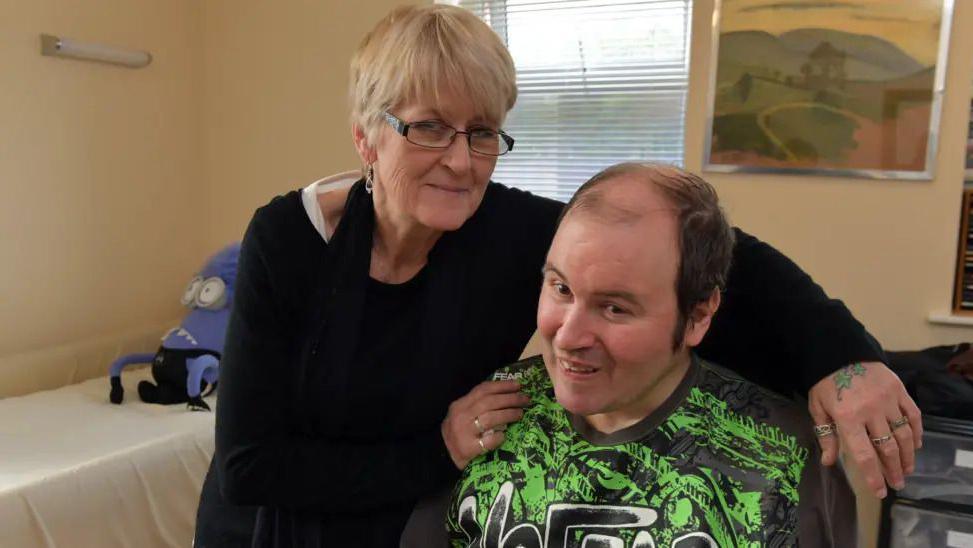
Angela Main with her son Leon Adams, who was left with severe brain injuries and needing 24-hour care after being attacked in 2002
- Published
The mother of a man who died more than two decades after being brutally attacked, has told an inquest she could only identify him by the shape of his nostrils due to his injuries.
Angela Main gave an emotional testimony at the inquest into the death of her son, Leon Adams, 23 years after he was beaten and left unconscious aged 24 in Grangetown, Cardiff.
No-one has ever been charged after Leon was assaulted and robbed of £138 in wages in his pocket.
Coroner Patricia Morgan concluded at Pontypridd Coroners' Court that while Mr Adams died from sepsis and complications from undiagnosed type 2 diabetes, the lasting effects of the assault had "more than minimally contributed to his death".
Man who was brutally attacked 23 years ago dies
- Published11 January
£10k reward to solve 2002 street attack
- Published14 February 2018
Ms Main told the inquest she also believed there was a link between Leon's death and the attack in 2002, telling the court "if Leon hadn't been battered, he would never have died".
Recalling the moment she saw him after the assault, she said: "When I walked in, I didn't recognise him at first, apart from his nostrils, that's how I identified him, the shape of his nostrils."
She recalled how he was "pink" and had been "stamped on", adding "the hospital thought he wasn't going to make it".

Leon was 24 when he was attacked and had been saving up his wages to get onto a course in computer programming
The court heard that Leon had been working at The Cottage Inn on St Mary Street as a barman and had left at 23:45 on 13 February.
Wales football team had played Argentina at the Principality Stadium.
He was found at 05:16 the next day near Grangetown train station by David Amos, a cleaner coming off his night shift at the Freeman's cigar factory.
He heard "the sound of heavy breathing" as he neared the station, and then saw a person lying on his back and "his face looked bruised and swollen, covered in dried blood".
Leon was in a coma for two years and, when he woke, could not speak or talk and needed 24-hour care.
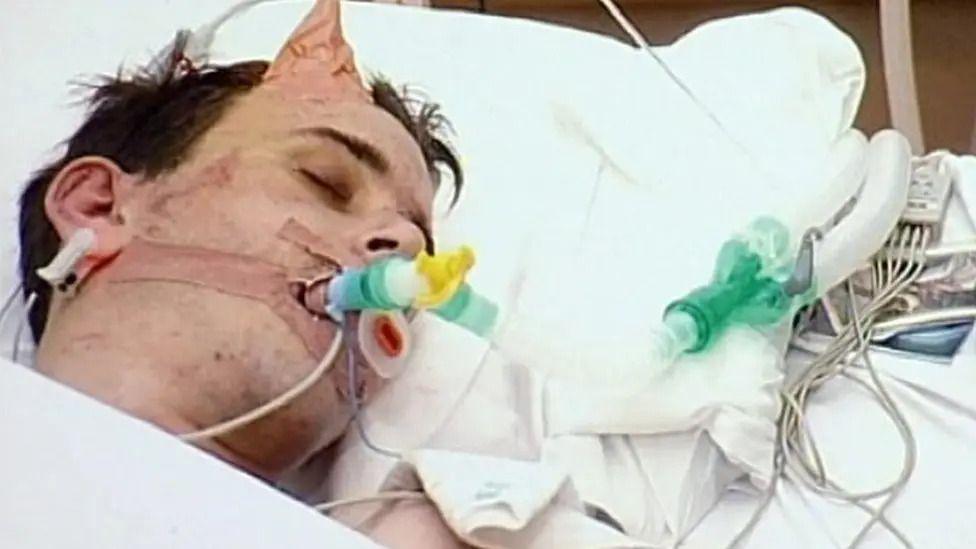
Police found Leon's chequebook and some papers next to him but his wages from his pub job were gone
Recalling how Leon had lived in the intervening years, Ms Main said he was "such a funny man" and would communicate by writing messages.
"He fought so many times over the last 23 years. He was such a fighter."
She described him as "doubly precious", telling the court her first born son had died at the age of 11 months from a chest infection.
Det Insp David Butt from South Wales Police said he had been investigating whether Leon's attack and death were linked.
He said the case remained a "live investigation" with officers collecting 518 statements over the years.
He said while three men had been seen arguing in the area of the assault at 02:35, no-one had ever been charged.
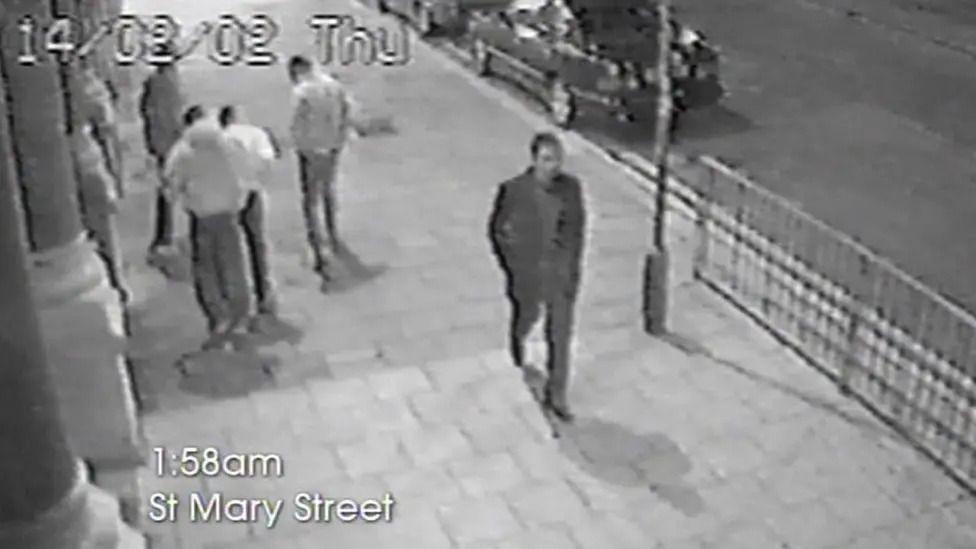
Leon, wearing dark clothing, was last seen on CCTV footage walking in Cardiff city centre at about 02:00 on Valentine's Day 2002
For the past eight years, Leon was living at Yr Ysgol, a nursing home in Ystradgynlais.
Ms Main said she became concerned in November 2024 that her son had lost weight and was declining again, but told the inquest she was "fobbed off" with staff not listening to concerns.
Leon was eventually admitted to Morriston Hospital in Swansea on 17 December 2024 and started having multiples focal seizures, the court heard.
"Every time he had a fit he would forget more stuff," said Ms Main, adding, "we couldn't let him suffer any more."
Ms Main also told the court she was shocked to learn Leon had hyperosmolar hyperglycaemic state (HHS), which is a life-threatening complication of type 2 diabetes, a condition that he had never been diagnosed with.
The court heard details of the interactions between the nursing home and a GP responding to concerns that Leon, who had to be fed through a peg tube, had experienced sickness and diarrhoea during November 2024.
Cliona Davies, deputy manager of Yr Ysgol, said the home was led by the advice of clinicians like the GP or dietician, and insisted Mr Adams only became "acutely unwell" by 17 December, when she called an ambulance.
Ms Davies described Leon as a "massive part of the Yr Ysgol community" remembering him as "quick witted and bubbly".
'Deeply saddened'
Recording a narrative conclusion, coroner Ms Morgan gave Leon's cause of death as septicaemia and HHS as well as a urinary tract infection with a contributory factor of acute kidney injuries, and spastic tetraplegia due to traumatic brain injury.
She added his injuries from the assault "meant he did not have the physiological reserves to fight infections" and so that "more than minimally contributed to his death".
Ms Morgan added she was unable to say whether a more prompt investigation of Leon's diabetes would have changed the outcome.
Speaking after the inquest, a spokesperson for Yr Ysgol said: "We are deeply saddened by the tragic loss of Leon Adams, who was a much-loved resident. Our heartfelt sympathies go out to his family and loved ones."
Related topics
Related internet links
More top stories
- Published16 October
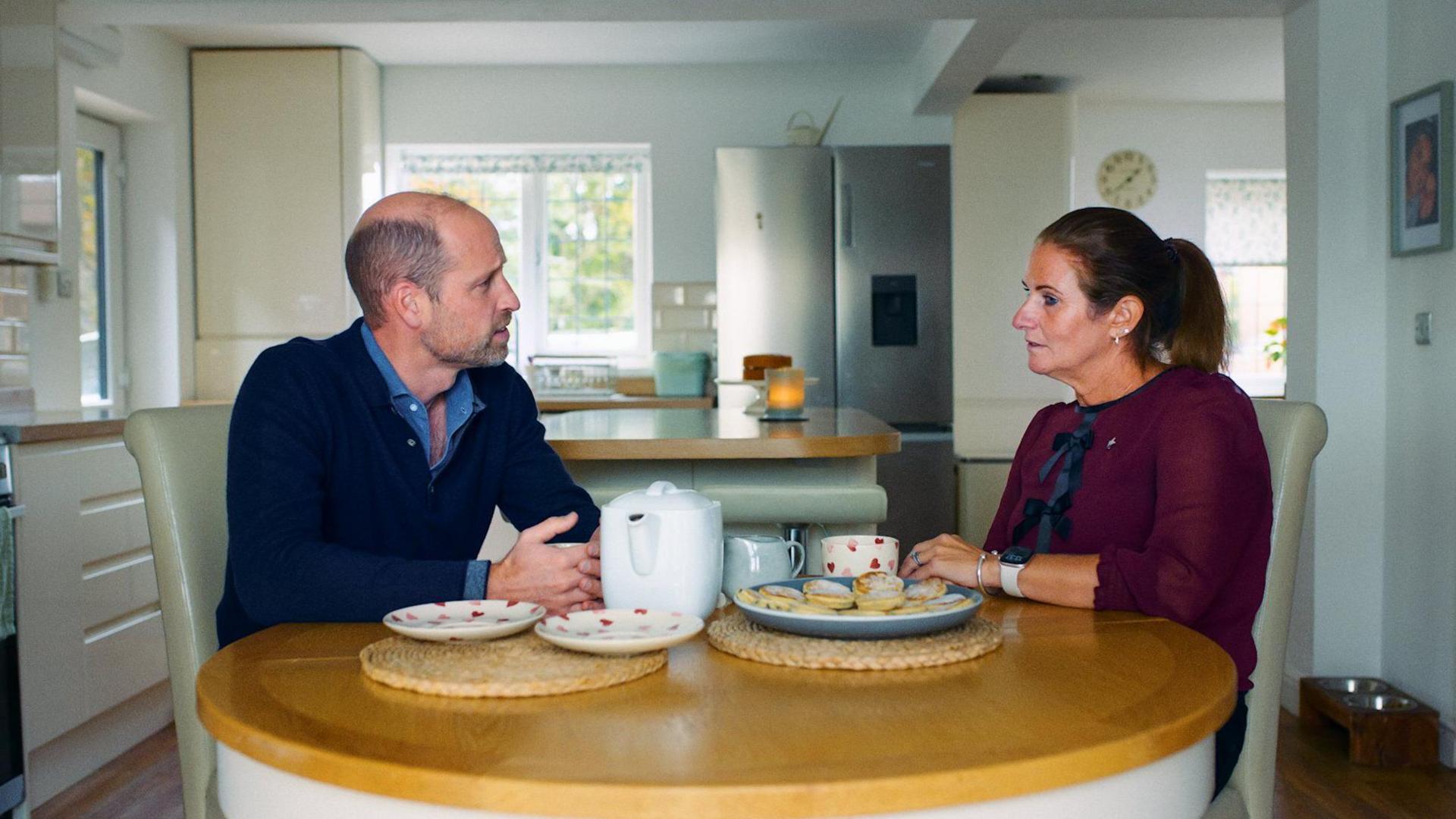
- Published15 October
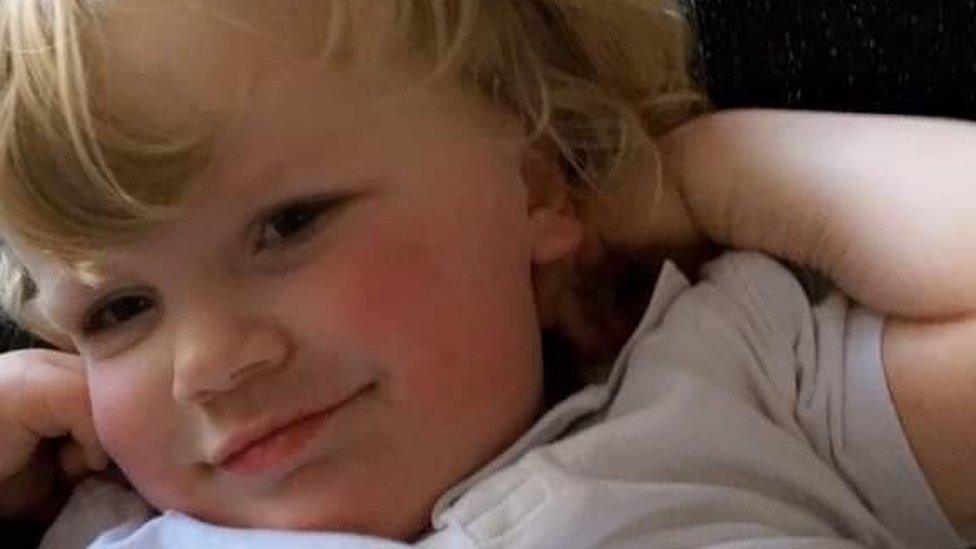
- Published15 October
